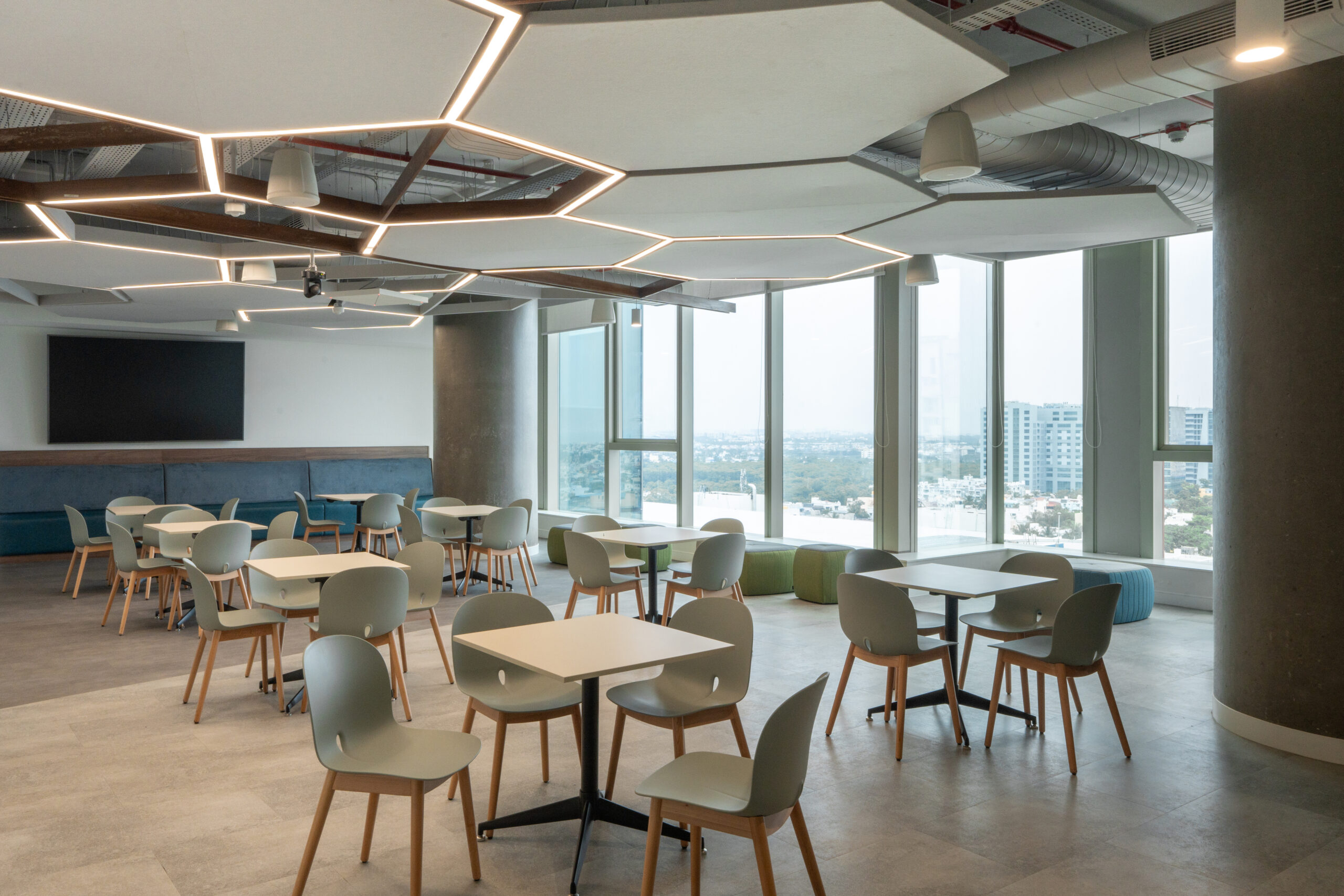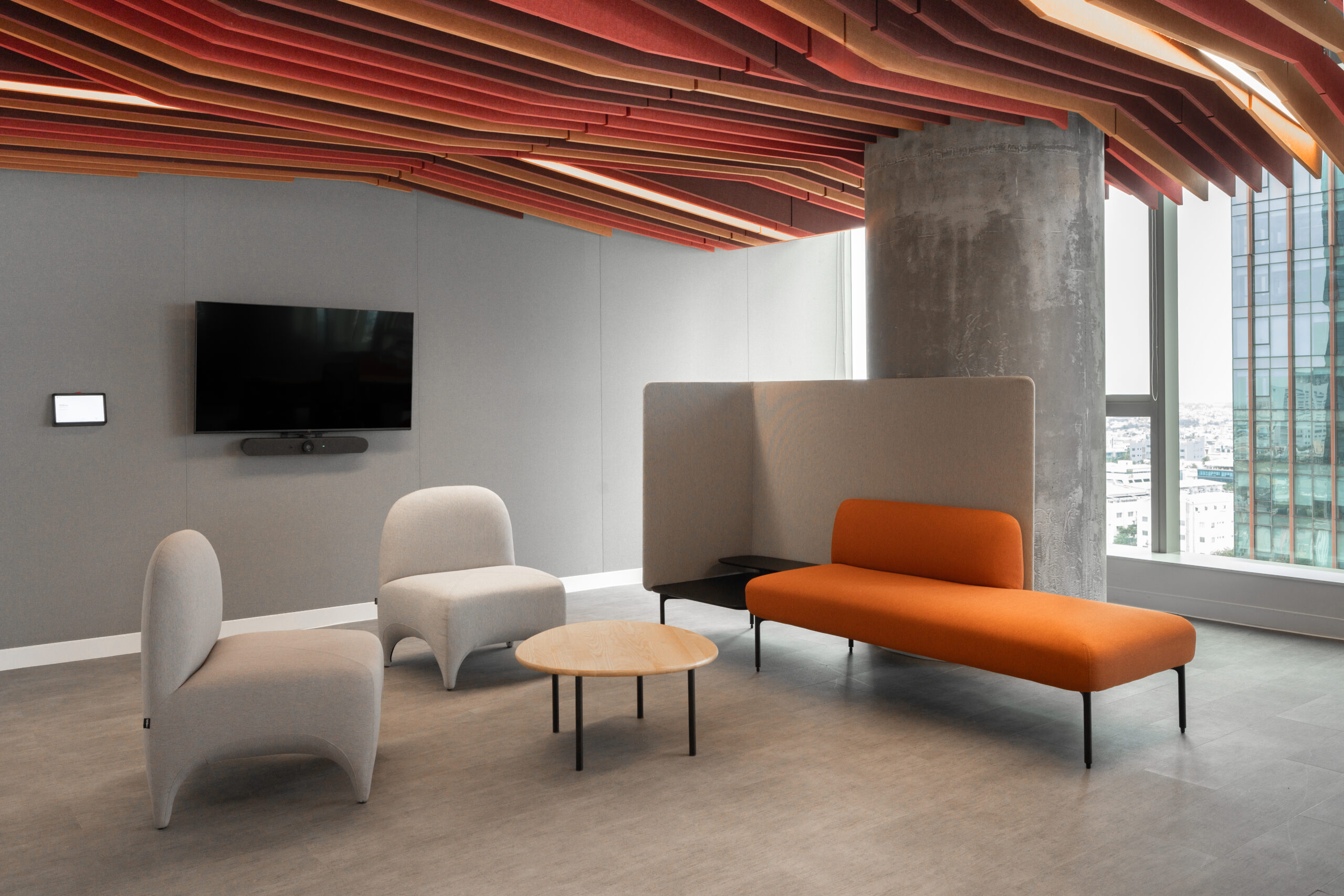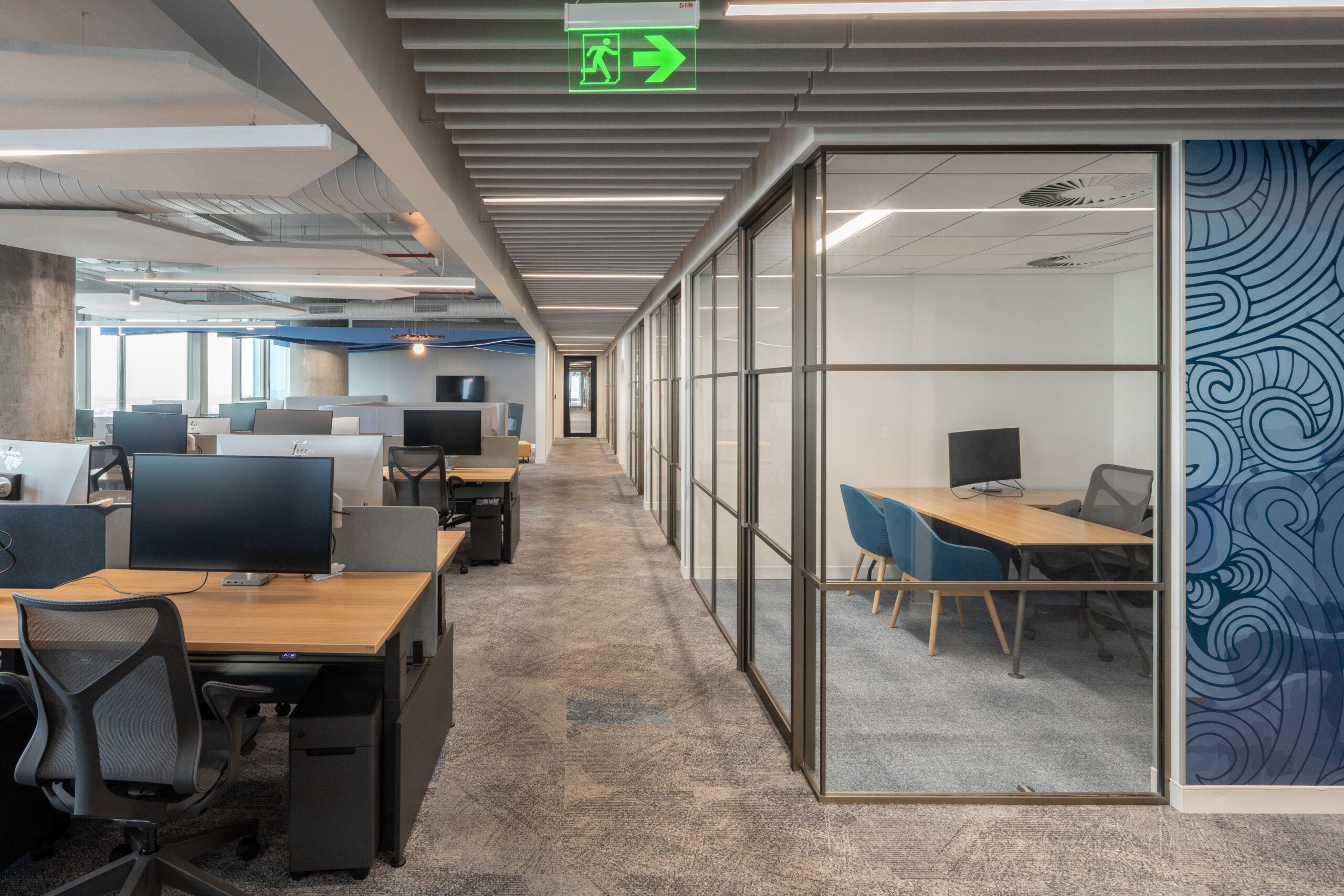Resonate has completed Appian’s new offices in the prestigious World Trade Center in Southern India’s regional capital city Chennai. Appian takes up 1 of the 28 floors of the world Trade Centre which has 1.8 million square feet (about twice the area of Chicago’s Millennium Park) of premium office, residential and retail space. The brief was to create a workspace that reflects both Appians’ brand as well as the local Southern Indian heritage through the use of materials, finishes, textures and colours.

Resonate was tasked to incorporate and highlight architectural features as seen in other global Appian locations, such as exposed ceilings and services, acoustic feature ceilings, exposed concrete elements, and a prominent logo wall. Resonate’s design scheme also subtly played upon the site location and building orientation, blending local site-specific themes; North: Inspired by Hill Stations, East: The beach, South: Ocean (Bay of Bengal) and West: Urbanisation.
Upon entering the office, you are struck by an impressive reception area which sets the tone of the space; a welcoming yet sophisticated aesthetic. A stunning geometric copper light installation spans the breadth of the ceiling providing visual stimulation as well as light whilst the muted colour palette is interrupted by pops of yellow and blue. The main open plan workspace prioritises natural daylight and creates different spaces to either focus or collaborate, ensuring employees have a balance of open plan and private spaces for different tasks. The acoustics of each area is both practical as well as a key design feature, from the striking linear ceiling baffles in collaborative areas to the elegant embossed acoustic panels in the meeting rooms. The entire design of the space has a ‘resimercial’ feel that promotes comfort, productivity and a sense of place. At the heart of the office, the central hub features a cafe with lovely iridescent mosaicking, a hexagonal ceiling light design and plenty of room, the perfect gathering spot for employees to socialise and interact away from their workstations.

There were numerous challenges to navigate during the design process, the most obvious being the differing time zones. With the client based in the US, the project located in India and the Resonate team based in the UK, regular site videos were required to maintain and ensure consistent progress with the design. Along with working across different continents, the roles and responsibilities in project management, main contracting and sub-contracting in India differed from the UK and US. By partnering with a local design consultant, Resonate was able to navigate the process. In India certain areas such as BMS rooms, AHU rooms, fire lobbies and cleaner’s cupboards are typically included in the tenant fit-out scope rather than the base build, this differs from general practices in the UK and US. Therefore, it was critical that Resonate undertook a thorough interrogation and appraisal of the building and floor plans before finalising any space planning and specifications, ensuring that all requirements were met.
The sheer size of the floor’s footprint meant that there was a lack of natural daylight in the central hub which was also a key design focus and challenge. Resonate connected the central hub to the main workspace using dynamic lines of sight, transitions of floor and wall finishes, the use of murals and natural finishes, to help create an ‘outside-in’ creating an inviting internal space.
At Resonate, Treading Lightly has always been a key value, knowing that every footstep makes a difference on the planet through the selection of materials, products and manufactures. With Treading Lightly in mind Resonate worked with global manufacturers who had local manufacturing facilities and sourced products that were only available locally which included Milliken for carpet and vinyl flooring, Herman Miller for task furniture, Bene for loose furniture and acoustic ceiling rafts & baffles from Instyle. The local design consultant helped the Resonate design team to source alternative locally manufactured products including wall tiles, paint and upholstery whilst teak wood was used for all ceiling feature joinery as this is a veneer native to southern Asia.

The World Trade Centre, Chennai also illustrates a commitment to sustainability achieving both IGBC LEED Platinum and USGBC LEED Gold certifications. For the Appian project, all paints, adhesives (including insulation adhesives) & interior finishing materials met the required VOC content standards as specified by LEED India CS.

